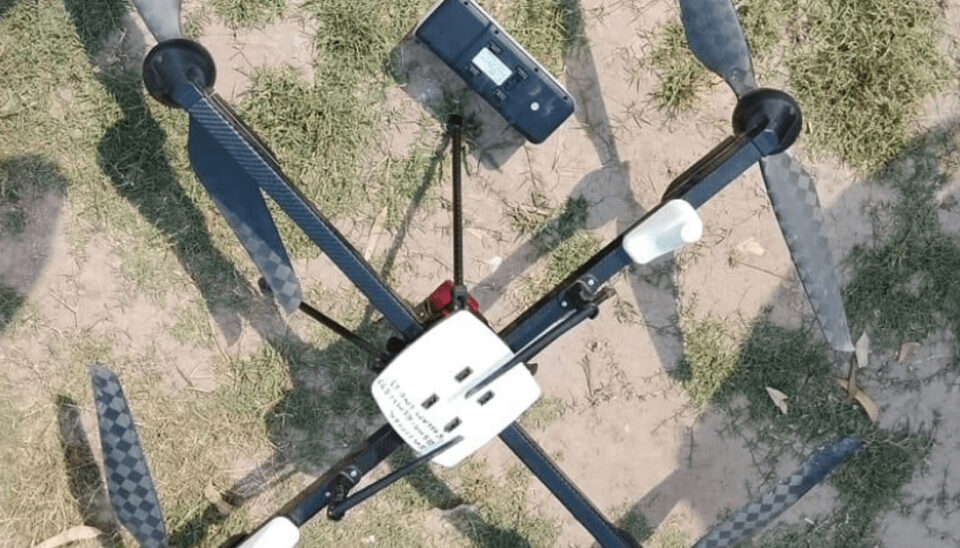ISLAMABAD: The Pakistan Army on Tuesday reported shooting down an Indian surveillance drone near the Line of Control (LoC) in Azad Jammu and Kashmir’s Bhimber district, according to state media.
The incident comes amid heightened tensions between the two countries following the tragic April 22 attack in Pahalgam, which claimed 26 lives.
According to security sources, the drone was allegedly conducting surveillance in the Manawar sector and was intercepted through what officials described as a “swift and professional response.” The army’s action was praised as a demonstration of its vigilance and readiness.
The cross-border situation remains tense, with media reports noting exchanges of fire across the LoC for several consecutive nights. While the Indian side confirmed these exchanges, there has been no official confirmation from Pakistan regarding the latest incidents.
Statements from Defence Leadership
Pakistan’s Defence Minister Khawaja Asif, in recent media appearances, emphasized that the country is maintaining a heightened state of preparedness. Speaking to Reuters and other local outlets, Asif said that while he did mention that the coming days are “crucial,” some of his remarks had been misinterpreted as predicting imminent conflict.
He clarified, “There is absolutely no doubt that a threat exists, but I never said war is inevitable.” The defence minister reiterated that Pakistan remains fully ready to defend its sovereignty but is equally committed to peace and regional stability.
Indus Waters Treaty Dispute Escalates
Adding to the diplomatic strain, Pakistan is preparing international legal action in response to India’s recent decision to suspend the Indus Waters Treaty (IWT)—a key agreement that has regulated river water sharing between the two countries since 1960.
Minister of State for Law and Justice Aqeel Malik confirmed that consultations are nearly complete regarding potential legal avenues, including the Permanent Court of Arbitration and the International Court of Justice. Pakistan also plans to raise the issue with the World Bank and the United Nations Security Council, asserting that the treaty cannot be suspended unilaterally.
“The treaty is essential for Pakistan’s water and food security,” Malik stated, highlighting the importance of protecting international agreements that support regional cooperation.
Cybersecurity Measures in Focus
Meanwhile, Pakistan’s Ministry of Information Technology has confirmed that attempted cyberattacks on government websites were successfully thwarted. Minister Shaza Fatima Khawaja said the country’s cybersecurity response teams acted promptly to prevent any serious disruption.
“There was no attack on our ministry’s website, and other affected sites were quickly secured,” she said. Pakistan currently holds a top-tier ranking in the Global Cybersecurity Index (GCI-V5) 2024, reflecting its commitment to strengthening digital infrastructure.
The National Cyber Emergency Response Team (N-CERT) also issued an advisory cautioning against the online sharing of sensitive content related to national security, urging media and the public to refrain from disclosing military movements or troop activities.
Regional and International Reactions
Amid rising tensions, countries including the UAE, China, Turkiye, the United States, and the United Kingdom have called for restraint and dialogue. The UAE’s Deputy Prime Minister and Foreign Minister Sheikh Abdullah bin Zayed Al Nahyan discussed the situation in a call with Pakistan’s Foreign Minister Ishaq Dar, emphasizing the need for peaceful resolution and regional stability.
China urged both nations to manage differences through dialogue, while Turkish President Recep Tayyip Erdogan and others echoed calls for de-escalation, expressing concern about the potential for further instability in the region.
Security Measures in Kashmir
In response to the Pahalgam attack, Indian authorities have temporarily closed over half of the tourist destinations in Indian-administered Kashmir as a security precaution. The local government has also increased the presence of security personnel in the region. The closures have caused concern among visitors during what is usually a peak travel season.
Conclusion
With diplomatic, legal, and military developments unfolding rapidly, both Pakistan and India face growing international pressure to avoid escalation and pursue peaceful avenues to address their concerns. Dialogue, legal recourse, and adherence to international treaties remain the key tools to ensure regional peace.

